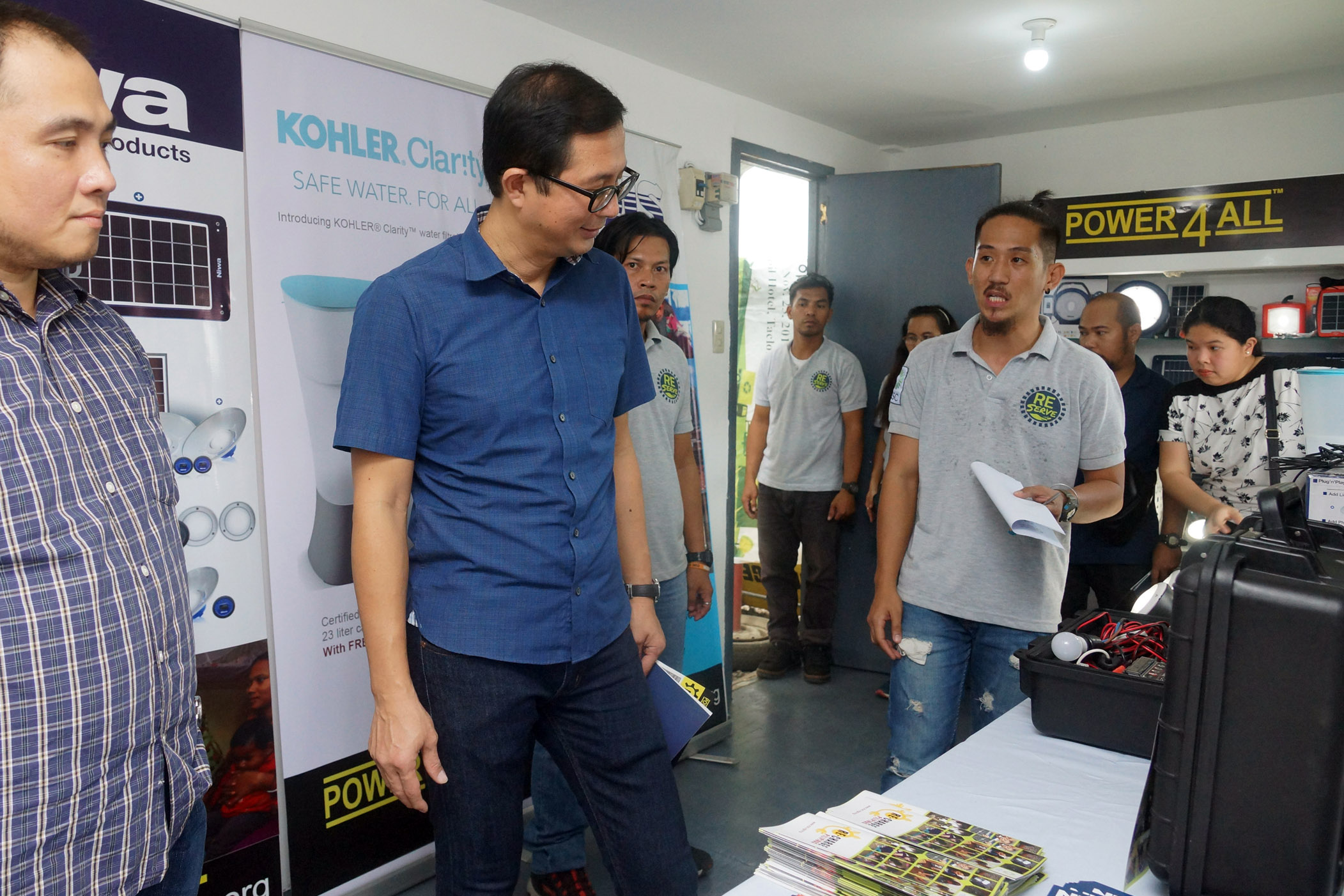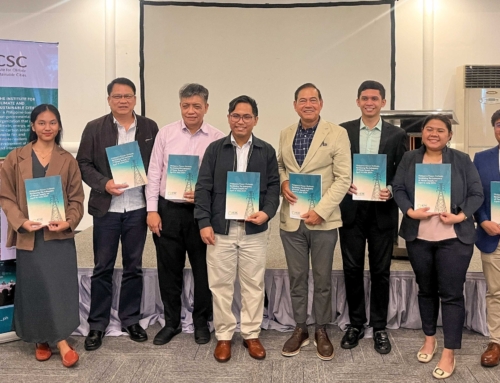TACLOBAN, 17 November 2018 – Tacloban Vice Mayor Jerry Yaokasin led today’s opening of the city’s first ever Renewable Energy Hub (RE-Hub), a community resource center on renewable energy (RE) and sustainable solutions, within the RE-Charge Pilipinas facility of the Institute for Climate and Sustainable Cities (ICSC).
At the RE-Hub, located in Burgos Street, downtown Tacloban, people can inquire about appropriate RE systems to address their household and community needs while RE technology providers showcase their products and services. It was a welcome addition to the current renewable energy initiatives hosted by Tacloban, according to Vice Mayor Yaokasin, such as the city’s electric jeepneys and tricycles.
“For us Yolanda survivors to survive and thrive in the midst of a changing climate, we need to limit global warming to 1.5 degrees Celsius based on the UN Intergovernmental Panel on Climate Change’s latest report. We want to lead the big shift from dirty fuels to clean renewable energy to help ensure that the next generations will not live in a world plagued by many more Yolandas and climate change impacts,” he said.
“The RE-Hub is a step in the right direction towards achieving low carbon resilience, guiding people and communities, consumers and enterprises in adopting renewable energy solutions for everyday energy needs and powering sustainable development,” he added.
Also among those who graced the RE-Hub launch were Jhun Mallanao of the RE technology provider Power 4 All, Barangay 38, Tacloban captain Alice Chua; and representatives of local homeowners’ associations and women’s organizations in Eastern Visayas. ###
ICSC, a climate and energy policy group, set up RE-Charge Tacloban in June 2014, a facility which was meant to show how renewable energy can aid in disaster response and reconstruction in the aftermath of Super Typhoon Yolanda (Haiyan) and bolster development. The facility is powered by a 9.75-kilowatt hybrid solar power system that provides most of the facility’s electricity needs, and was integrated with a sustainable transport initiative in the form of e-jeepneys and recovered bodies of multicabs that were converted into e-multicabs.
It has been renamed RE-Charge Pilipinas as the reach of its Solar Scholars program, or solar power trainings for community responders, has expanded beyond Eastern Visayas as far as the provinces of Cagayan, Laguna, Rizal, and Iloilo. The program has also recently sent members of the RE-Serve Humanitarian Corps, a volunteer group trained to provide solar power to humanitarian and emergency responders, to hold Solar Scholars training in Cagayan after Typhoon Ompong (Mangkhut).


![[REACTIVE] ICSC to MMDA: Removal of EDSA bicycle lanes derails progress](https://icsc.ngo/wp-content/uploads/2024/04/20240425-Reactive-EdsaBikeLanes-500x383.png)



